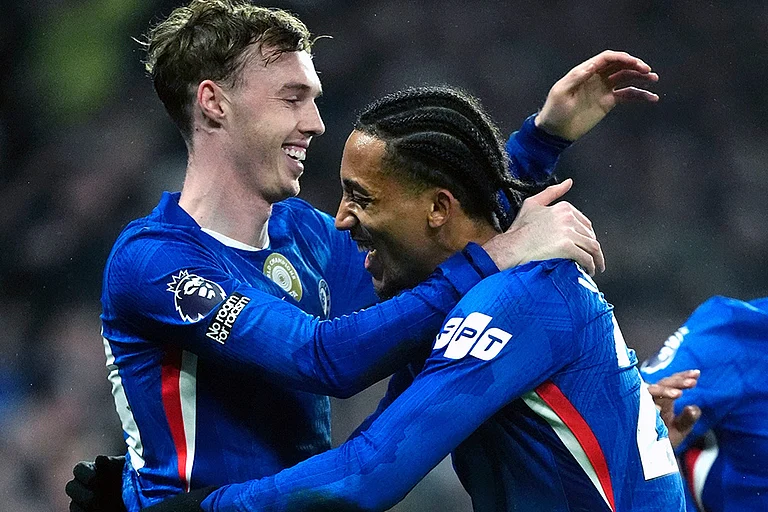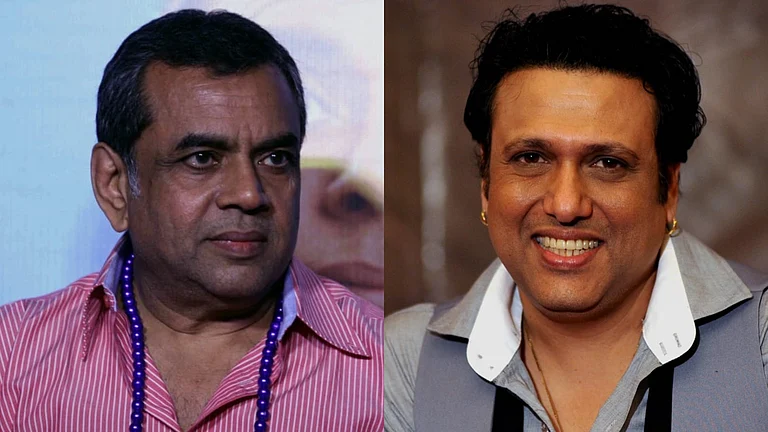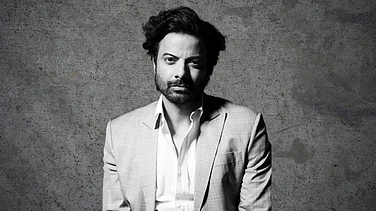
Sometimes a journalist’s mailbox can hold clues to interesting parallel stories. For every post that adds a zero to the multi-crore collection of Salman Khan’s Kick or Ajay Devgan’s Singham Returns, another quietly informs you about the tax exemption granted to Priyanka Chopra’s Mary Kom, about its premiere at the Toronto International Film Festival alongside Kalki Koechlin’s Margarita With A Straw or how Sridevi’s English Vinglish has emerged as the second biggest Hindi film in Japan after Aamir Khan’s 3 Idiots. Stories perhaps of heroines taking unusual baby steps of cinematic success as against the giant rupee strides their male counterparts are taking week after week. A drop in the Bollywood ocean perhaps, but otherwise welcome in that shrivelled and scorched, male-skewed universe.
It began in a small and steady way, with the surprise success of Vidya Balan’s Kahaani in 2012, the year when Heroine and English Vinglish pulled it off as well. This year we have seen a far bigger chunk of women-focused films than ever before, beginning with Highway and Dedh Ishqiya. Queen delivered big numbers too and won many a heart. Gulaab Gang, Revolver Rani, Bobby Jasoos and Mardaani followed quick on its heel. Mary Kom is up next and Sonali Cable, Khoobsoorat and the offbeat Qissa are just waiting round the corner. “It has been a landmark year and I am glad to have been a part of it,” says Soumik Sen, director of the crime drama film Gulaab Gang. Meanwhile, the young Anushka Sharma has already turned producer for a road movie titled NH 10, with herself in the lead role. Kalki and Richa Chadda come together in yet another road movie, Jiah aur Jiah, where two women with the same name go on a journey together in a sort of Thelma & Louise way. “There have been enough films about male bonding,” says Richa. Kalki describes Margarita With A Straw—portraying a girl suffering from cerebral palsy—as a film “owned by women, Revathi, Sayani Gupta and myself”. Deepika Padukone’s ‘quirky’ Piku has her and her relationship with her father (played by Amitabh Bachchan) in focus. And last heard, a big biopic on a woman underworld don is likely to be announced soon.
Is it time then to uncork the bubbly and raise a toast to the Indian heroine? Not yet, it seems. Let’s get a few things out of the way—the barriers women in Bollywood are up against, for instance. “Of the 52 Fridays in a year, the big heroes monopolise the lucrative holiday weekends,” says Sen. Even the fees the female stars get is well below the males, the ratio sometimes as steep as 8:1 in favour of men. Then, in a business that thrives on the crucial first weekend collections, even what turn out to be the most successful woman-centric films, like Queen, have been slow burners, opening very low (see graphic) and gaining mostly by word of mouth. Queen got off the mark with mere Rs 1.8 crore as compared to the Rs 32.09 crore Singham Returns raked in on Day 1. “It’s only the sex-oriented women’s films like The Dirty Picture and Ragini MMS2 that open well,” says Shailesh Kapoor, the CEO of Ormax Media, a Mumbai-based media monitoring agency. Where women-oriented films do well is at the multiplexes, getting 85 per cent of their revenue from them, as compared to the 70 per cent for any other Bollywood film. These are basically then films that do well in the Delhi-Mumbai-Calcutta-Bangalore-Chennai-Hyderabad (read big metro) markets as against the other centres which are still quite happy patronising the male action heroes. “Even in the West, you wouldn’t find a woman headlining a superhero film,” says filmmaker Rohan Sippy, producer of the forthcoming Sonali Cable, an endearing tale about a young girl running a small cable business in Mumbai.

Vidya Balan, Bobby Jasoos, Cotton suit and sport shoe-clad girl-next-door in Hyderabad turns detective
Why this slew of women-centric films now? Is it just a matter of coincidence, a passing fad? Whether it turns out to be just a small wave or a tsunami we’ll know only over the next couple of years, but as Kalki says it’s about going “two steps forward and one back”. “It’s about making incrementally different films, not something drastic or radical,” says Charudutt Acharya, director of Sonali Cable. The industry itself is happy about the slow but sure change. Whether it was about finding good roles and meaty scripts or getting funds for a woman-oriented project and eventually striking good exhibition deals, traditionally the die has not quite been loaded in favour of the heroine. Now, it’s getting relatively easier to raise money. “There are more scripts with better things for a woman to do,” says Richa Chadda. Sujoy Ghosh, who set the ball rolling with his Kahaani in 2012, thinks it’s happening because the audience is far more accepting now. “We are much more aware now of things happening around us, we see women in equal if not more responsible positions than men; tasks which were once given to men are now being done by women,” he says.

Rani Mukherjee, Mardaani, Tough cop Shivani Shivaji out to bust child trafficking racket
Another reason, some say, could be the violence against women that has been reported, documented, ‘fashionised’ and in general captured the imagination of the social media generation and media in general. “A film like Queen, which I enjoyed very much, may not have had the response that it had if it were “pre-Nirbhaya” and the discourse it sparked,” says actress Tilottama Shome. Much of the change has been led by the women themselves as it has been in real life. “The burden of ensuring business has been the hero’s preserve so far. Now heroines are willing to take the risk,” says Richa. So the Bollywood trade that has hitherto been run like a feudal, patriarchal set-up may now be willing to be more accommodative and gender-equitable, provided it sees the money. The heroines, says filmmaker Shoojit Sarcar, have been overshadowing heroes in terms of their choice of work. “Top-of-the-line actresses are proudly backing unusual projects, doing things on their own terms. They don’t want to just dance around the trees,” he says. The sheer range of roles and narratives of women-centric films is far superior and more progressive. Tilottama, however, feels that though the Bollywood woman has progressed from pious goddess to the sexy, sexy mujhe log bole, to the assertive kissing heroine, in truth, these are just mild variations of each other. “The intolerable change has been in the hypersexualisation of the female body to make profit. But thankfully there are a few directors who are exploring narratives that are gender-sensitive and make place for women of different sizes,” she says. Things are changing, she feels, even if at glacial speed, thanks to the few independent filmmakers and producers who have taken the risk at personal cost. She has done some unusual roles like playing the stony Aruna Ahemadi in Dibakar Banerjee’s Shanghai or Kanwar the man-woman in Anup Singh’s Qissa.

Alia Bhatt Highway, Child woman Veera’s journey of self-discovery with her kidnapper
The most interesting bit in all this cinematic assertion is how gender roles too are getting redefined. Bobby Jasoos is sharp-focused on a woman detective from Hyderabad. “She can do anything a man would do, she competes with men,” says its director Samar Shaikh. “Isn’t that happening in other spheres of life, women are doing even better than men?” “As a writer, I know that maybe 15 years ago, I would need a man to take down a terrorist, but not anymore,” says Ghosh. So in Bobby Jasoos and Mardaani, the ‘hero’ uncomplainingly goes to the margins and the women take centrestage. Heroes are willing to get sidelined. “It’s a Vidya Balan film but Ali Fazal, Kiran Kumar, Arjun Bajwa understood and helped Vidya lead,” says Shaikh. The upcoming Qissa presents gender-bending and issues of identity and sexuality in an even more complex light, one which befuddles and provokes.

Priyanka Chopra, Mary Kom, Biopic of the boxer and first ever Northeast protagonist in mainstream film
Many heroines say the portrayal of women in cinema will change in a profound manner when the portrayal of our ‘heroes’ gets a real punch. It’s only when we can see real men as heroes who feel fear, self-loathing, cowardice, not want to get into fights and not the ‘manly men’ of a Kick or Singham or Bang Bang in mainstream films can there be space for the real woman. This will also make a film neutral, as it happens in real life, rather than a male or female film. As Acharya points out, women-centric films shouldn’t be made to prove a point. His Sonali Cable may have a woman protagonist but makes no song and dance about it. Instead, he makes her the medium to tell the tale of large business houses eating into small enterprises. “Her journey is like that of a guy,” he says. As script-writer Ishita Moitra points out, the true significance of a Mary Kom is not that it’s a woman’s film. “It’s the first time we are seeing a protagonist from the Northeast in a Hindi film. That’s the bigger thing than about it being a woman’s film or a sports film,” she says.
But can these tags ever be shed? Will our audience lustily whistle for a real triumph of a real woman in a film? Will our filmmakers have the guts to make such films, when all the talk on a Friday is only about multiples of crores?






















